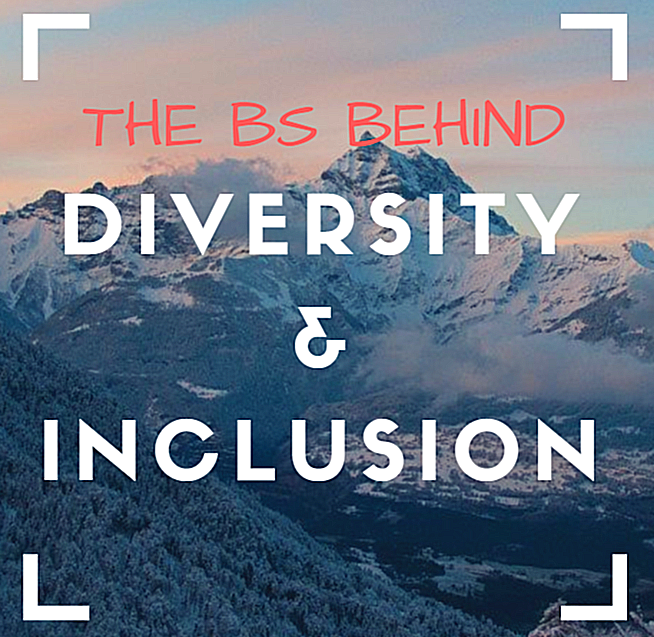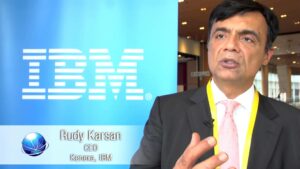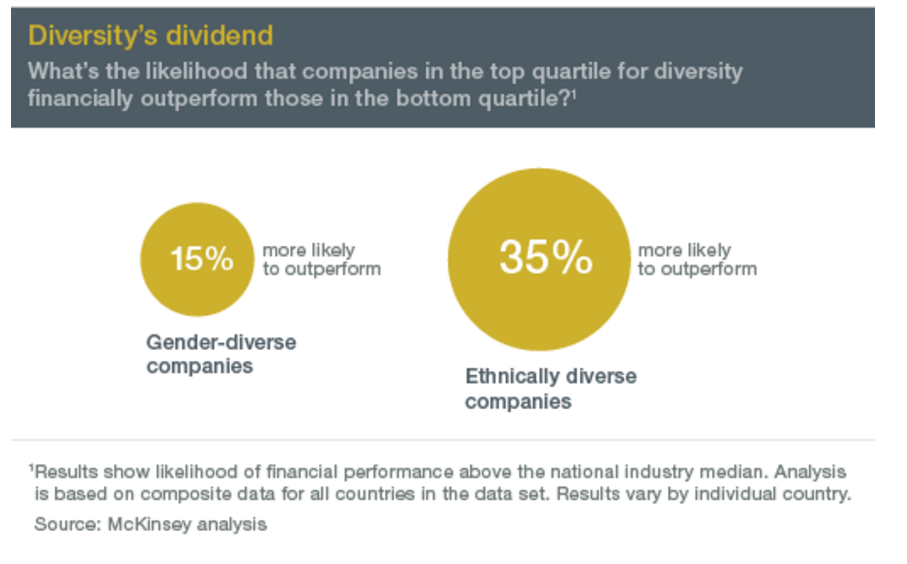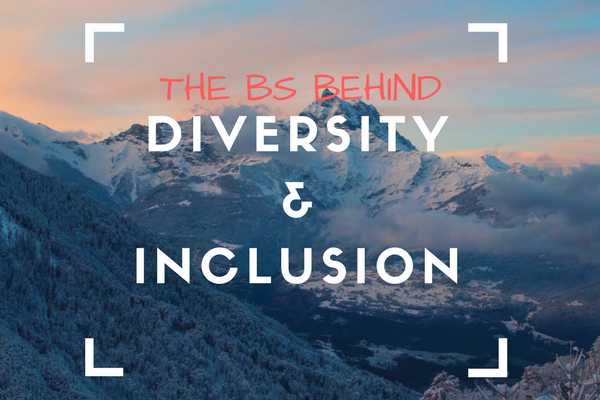 I cringe at the notion that diversity is an economic driver, or that in order to grow a successful company you must hire diverse candidates.
I cringe at the notion that diversity is an economic driver, or that in order to grow a successful company you must hire diverse candidates.
Hiring a diverse candidate is a little bit like peeking through the glass at your local zoo and pointing out the that the lion would make your company recognized as a leader simply because you hired a lion.
Let’s call diversity hiring what it is at most companies: It’s BS. It’s about quotas, hitting numbers, getting funding, and running campaigns on Facebook about how the company loves to hire diverse candidates. And by the way, characterizing a new hire as “diverse” instead of recognizing their capabilities is fairly demeaning, too.
The unfortunate fact is that topics like diversity and inclusion, while massively important to building and scaling successful cultures, are often lip-serviced in organizations as “an HR thing” or “something we need to do.”
Diversity does drive economic growth, and yes, hiring diverse candidates will make your organization stronger, but only if you apply a purpose to the mission.
The business of diversity and lost meaning of Inclusion
Diversity and Inclusion are serious terms. They have real meaning, and in business they have real impact with deep ties to the bottom line. When executed with the right purpose, they create meaning.
But, diversity and inclusion do not mean the same thing. They are stand alone efforts that need each other to thrive.
Diversity is about mixing cultures and backgrounds and leveraging those cultures to share views from a variety of those backgrounds. Inclusion is different.
Inclusion is how the organization respects its employees, creating an environment that places equal value on ideas rather than job titles. You can think of inclusion a little bit like “psychological safety,” which Google research consistently finds to be present in top teams.
My Inclusion Experience – My days at Kenexa
It was 2009. I was two years into my Kenexa career when a day arose that forever changed how I work. A deep bellowing scream came barreling through the halls. It was Rudy Karsan, the founder and CEO of Kenexa, blowing through the halls screaming.
These were funny screams. He’d occasionally do things like this, which although seemingly intimidating at the time, was in the end a genius way to provide some blood flow in an otherwise routine day.

He sat at my desk and said, “Ryan, what is on your desktop right now?” Followed by an awkward pause, he repeated, “What is on your desktop? Show me.”
I showed him. I had five tabs open across two monitors; Facebook, YouTube, BrassRing, Outlook and a now defunct add-on for text messaging through Google.
“What the hell is this? Are you working? Show me how this is recruiting our people!”
And so I did.
I walked our founder and CEO through the process of using YouTube, Facebook, and a text messaging app to recruit his next Java Developer.
The point here is that Rudy never cared who you were or what level you were within his organization. If you were there, he trusted your opinion.
A diverse employee population meant a more qualified workforce, and it fostered creativity. I spent the next eight years of my career supporting his mission, even through the Big Blue acquisition where I was given a six-character serial number to identify myself.
I felt empowered. There were no biases, no prejudices in his leadership. If you could talk, you had a voice.
3 articles that made me think deeper about diversity and inclusion
Article 1: McKinsey on Why diversity matters
McKinsey research from January 2015 has shown that companies in the top quartile for gender or racial and ethnic diversity are more likely to have financial returns above their national industry medians.

Companies in the bottom quartile in these dimensions are statistically less likely to achieve above-average returns.
Article 2: Diversity and Inclusion top the list of talent practices linked to stronger financial outcomes
Research by Josh Bersin has shown that companies committed to diversity had 2.5X higher cash flow per employee over a given three-year period than non-diverse companies had.
The numbers are there. So why don’t we necessarily care more?
One reason is that “we’ve always done it this way.” In the S&P 1500 about two years ago, more guys named “John” ran companies than females in total. While this is changing in terms of gender and race, much white-collar work is still dominated by white males. We’ve come far, but we have a long way to go.
Article 3: Silicon Valley cannot hire diverse candidates
Another reason is that the business climate of today is seemingly driven very much by Silicon Valley. It feels like every article about business advice cites a Silicon company (usually Google), and Silicon Valley has been lip-servicing diversity for years while still printing money.
Facebook, for example, is only 33 percent female (the U.S. population is about 51 percent female and 52 percent white. (YouTube is 61 percent white.) Black and Latino workers fill less than 5 percent of technical roles.
Remember the Google diversity memo which prompted headlines such as this doozy: “Silicon Valley’s new technocrats still engage in old-school sexism” (or “Google Memo Completely Misses How Implicit Biases Harm Women.”)
Unwrapping the Core of Inclusion
Join us for our upcoming webinar with 3 recognized Diversity and Inclusion experts.
It’s moderated by Torin Ellis, diversity specialist and author of RIP The Resume, and will feature Nzinga Shaw, the first diversity & inclusion officer in NBA history (now with the Atlanta Hawks), as well as Amir Ashkenazi, a serial entrepreneur currently serving as founder and CEO of Uncommon Co.
The host and panelists here are experts in baking diversity and inclusion into a culture, from buy-in (i.e. some of the financial numbers above) to “living it” (making sure it’s not just something mentioned at all-hands meetings), and how it fits into your overall recruiting and talent management strategy.
I’m no expert on diversity, but these three are, so definitely register to learn about why this is important and how to make it work in your organization.
.
.
Authors
Ryan Leary
Ryan Leary helps create the processes, ideas and innovation that drives RecruitingDaily. He’s our in-house expert for anything related to sourcing, tools or technology. A lead generation and brand buzz building machine, he has built superior funnel systems for some of the industries top HR Tech and Recruitment brands. He is a veteran to the online community and a partner here at RecruitingDaily.
Recruit Smarter
Weekly news and industry insights delivered straight to your inbox.






